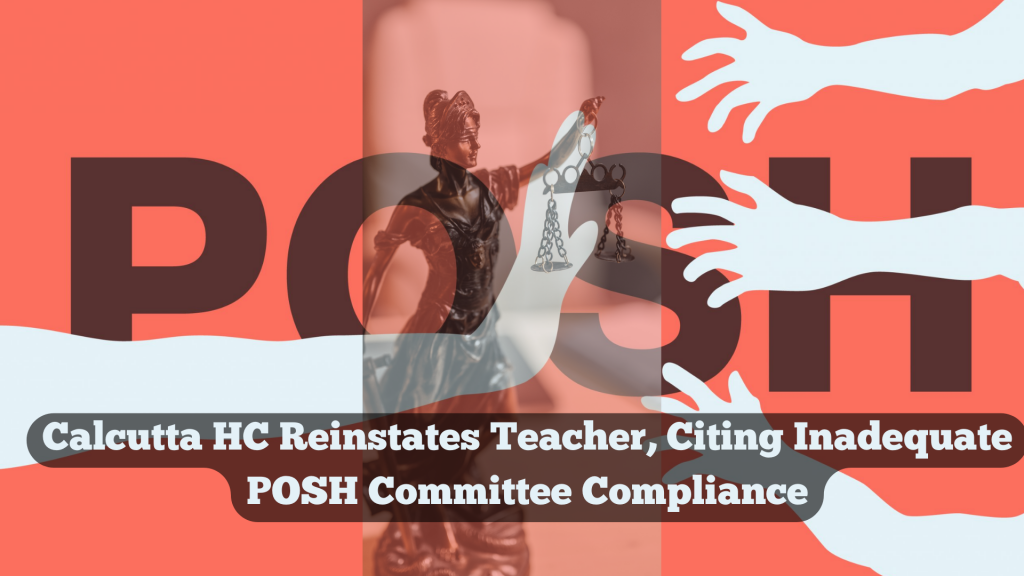
Calcutta Hc Reinstates Teacher, Citing Inadequate Posh Committee Compliance
Judgement Given On : 05/10/2021
This writ petition challenges the Central Administrative Tribunal, Kolkata Bench’s order dated 05.10.2021. The central issue in this case revolves around the legality of the suspension order imposed on the petitioner and the statutory authority of the committee established for a summary trial concerning allegations of sexual harassment in light of The Sexual Harassment of Women at Workplace (Prevention, Prohibition and Redressal) Act, 2013, and amendments to the Central Civil Services (Classification, Control and Appeal) Rules, 1965.
Facts of the Case:
- The petitioner, a teacher appointed as TGT (Trained Graduate Teacher)-Nepali by the respondent school, faced written complaints from several students alleging sexual harassment.
- The school’s principal reported these complaints to the Officer-in-Charge of Ravangla Police Station, subsequently initiating an internal committee to investigate the allegations. Approximately 67 students filed written complaints with this committee regarding personal harassment by the petitioner.
- Based on the complaint, a case was registered under Section 10 of the Protection of Children from Sexual Offenses Act, 2012 (POCSO), and the petitioner was arrested.
- The petitioner was not formally informed of his suspension; he learned of it unofficially.
- In response to an email inquiry about his status, the school informed the petitioner that he was placed under suspension in accordance with sub-rule (2) of Rule 10 of the Central Civil Services (Classification, Control and Appeal) Rules, 1965.
- The petitioner appealed the suspension to the Chairman of the school under Rule 23 of the Central Civil Services (Classification, Control, and Appeal) Rules, 1965. Subsequently, the respondent school authorities informed the petitioner that a committee was established for a summary trial to inquire into the allegations against him, bypassing the regular disciplinary proceedings.
Contentions of Petitioner:
- Given that the complaint pertains to sexual harassment in the workplace, the respondent school authorities should have formed an internal complaints committee. Such a committee would have been deemed the inquiring authority appointed by the disciplinary authority.
- The petitioner challenges the impugned order because the Tribunal directed the authorities to proceed with the summary trial, which lacks legal validity due to the existence of The Sexual Harassment of Women at Workplace (Prevention, Prohibition and Redressal) Act, 2013.
- The petitioner argues that the suspension order is illegal as it was issued while he was in custody for 24 hours, in clear violation of Rule 10(2) of the CCS CCA Rules.
Court Observations:
- The committee established by the respondent school authorities cannot be considered an internal complaints committee as required by Section 4 of The Sexual Harassment of Women at Workplace (Prevention, Prohibition and Redressal) Act, 2013. Although the committee was formed in accordance with a 1993 school notification, it lacks the fundamental legal requirements under Section 4 of the Act and, therefore, no longer holds statutory force.
- The committee’s establishment for a summary trial failed to adhere to mandatory legal requirements, rendering the rules cited above devoid of legal force.
- Consequently, the Tribunal’s order, affirming the legality of the summary trial committee, is legally unsustainable.
- The respondent school authorities are instructed to allow the petitioner to resume his duties within one month and to pay all back wages within two months from his date of rejoining.
